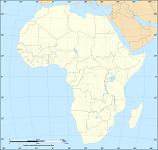African leaders have made the case for increased investment in technology and innovation to accelerate the implementation of Sustainable Development Goals (SDG).
The 9th Session of the Africa Regional Forum on Sustainable Development (ARFSD), held in Niamey Niger, from 28 February to 2 March, was to follow-up and review progress made on achieving five selected SDGs on clean water and sanitation; affordable and clean energy; industry, innovation, and infrastructure; sustainable cities and communities; and partnerships for the Goals. The meeting also formulated key messages on accelerating the implementation of the United Nations’ 2030 Agenda and the African Union’s Agenda 2063.
A post-Forum statement – The Niamey Declaration on accelerating the inclusive and green recovery from multiple crises and the integrated and full implementation of the 2030 Agenda for Sustainable Development and Agenda 2063: The Africa We Want, of the African Unioncalled on governments to invest in science and climate observations systems to trigger changes to meet the SDGS.
The Declaration encouraged African countries “to harness science, innovation, and cutting-edge emerging technologies such as artificial intelligence, to drive the transformative change needed over the next decade to achieve the Sustainable Development Goals, and increase their investment in digital weather and climate observation systems to help build early warning systems for all citizens of the continent.”
Leaders highlighted that geopolitical, financial, climate and biodiversity crises have amplified economic hardship, reduced prosperity, and societal progress in Africa. This has exacerbated poverty, food insecurity and inadequate access to affordable energy, which in turn has deepened existing inequalities and hindered progress in achieving the Sustainable Development Goals.
Besides, they noted that many African countries, barely recovering from the impacts of COVID-19, are on the brink of a financial crisis as a result of high debt, a decline in foreign direct investment and trade.
Worse, many African countries were challenged by severe public debt management exacerbated by prohibitive borrowing costs. Large-scale, sustainable financing for an inclusive, green, and resilient recovery from the COVID-19 crisis and accelerated implementation of sustainable development in Africa is needed.
The Forum was organised by the Economic Commission for Africa (ECA) and the Government of Niger, under the theme “Accelerating inclusive and green recovery from multiple crises, and the integrated and comprehensive implementation of the 2030 Agenda and Agenda 2063”. It brought together government ministers, high-level policymakers, and representatives from intergovernmental organizations, the private sector, civil society, development partners and other major groups,
We are “convinced that the status quo represents a danger for the implementation of both agendas, and that only innovative solutions developed in vertically and horizontally integrated ways within an institutionally coherent framework will lead to the successful implementation of the agendas,” read the Declaration.
The leaders, acknowledging that Africa’s natural and human endowments presented opportunities to address the challenge besetting many countries, called for ambitious internal and external partnerships and greater determination in the continent’s transformation intentions.
“We call on ECA, the UN system and other partners to continue to support African member States in the pursuit of resource-based industrialisation, including the promotion of a mineral value chain for lithium-ion batteries in Africa,” the leaders said in the Declaration, inviting development partners to support African countries access innovative financing to support green and just transition and welcoming climate action initiatives to address financing challenges.
Addressing the Forum, Deputy Secretary General of the United Nations, Amina Mohammed urged African leaders to set clear ambitions to reduce poverty and inequality by 2030 through investment in African economies.
“They must make clear commitments to fully aligning national institutions and budgets with the framing of SDGs and they must forward concrete plans to drive critical SDG translations from energy to food systems to digital technology to social protection and education and real commitment to leave no one behind,” Ms. Mohammed said, underscoring the need for a reform of the global financial architecture to unlock affordable financing for African countries.
“We need a breakthrough on access to finance for African countries to upscale the urgently required investments,” said Ms. Mohammed. Economic Commission for Africa’s Deputy Executive Secretary and Chief Economist, Hanan Morsy, noting that African countries have borne the brunt of the multi crises of food, the Ukraine war, the Covid pandemic and climate change, called for a green and resilient recovery.
An analysis by the ECA shows that Africa will need around $438 billion of adaptation funding by 2030. Apart from the threats of climate change, security threats were also undermining efforts to make lasting development progress.

